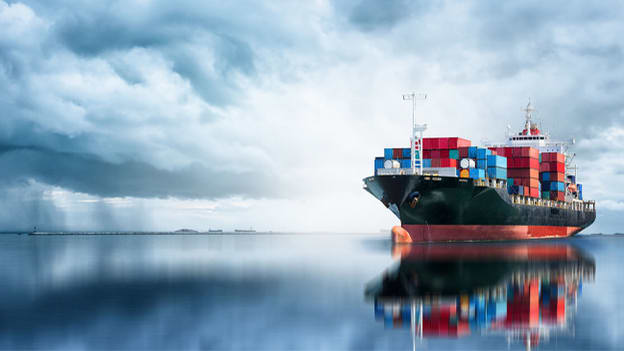The changing landscape of maritime jobs and skills

From one perspective, the maritime industry is facing much the same problems as the rest of the economy. A July report by Moody's Investors Service indicated drastically reduced demand for container and dry bulk shipping services due to COVID-19 affecting manufacturing and consumption, meaning that the industry is looking at a glut of ships and manpower in much the same way as the aviation sector.
On the other hand, maritime companies have frequently faced difficulty finding the talent they need. An estimated 90 percent of the world's trade moves by sea, and the industry's size considerably outstrips the manpower available to it. Hence, shipping lines are very unlikely to see layoffs and pay cuts of the scale that airlines have suffered for the last six months. A McKinsey report on global freight volumes suggests that despite the pandemic's lasting impact, trade volumes will recover. And in fact many maritime companies, being essential service providers, are still operating and hiring as per normal. At one careers workshop hosted in August by the Singapore Maritime Foundation, some participating companies even indicated that they were already planning next year's hiring, and many said the need for talent is ongoing.
For instance, Hemant Naik, the global shipping category manager of Shell Companies in Singapore, who leads the Maritime Talent Hub for Shell Singapore, told People Matters that Shell has a consistent demand for maritime talent in both technical and commercial areas, listing a broad range of positions such as fleet maritime officers, maritime technical advisors, commercial operators and freight traders "The need for maritime skillsets will continue to evolve along with industry needs and the energy transition," he said.
The great digital shift and the soaring demand for IT skills
The maritime industry has historically been slow to adopt technology, but COVID-19 has forced companies to undergo digital transformation on very short notice in order to continue operating. For instance, ship registries, which provide identification and documentation services for ships, have had to shift their operations online to continue operating under lockdown conditions. Ports have rushed to automate their systems, from inspections to issuance of documents to directing the movement of freight, in order to minimize physical interactions between ship and port personnel.
As a result, the entire maritime landscape is shifting at high speed. Technology is changing the way work in some areas is carried out, according to Kenneth Chia, executive director of the Singapore Maritime Foundation. Listing technologies such as AI-driven platforms to optimize processes, machine learning platforms to predict cargo flows, technologies to improve satellite communications out at sea, or drones to survey ships remotely, he pointed out.

Singapore Maritime Foundation
"Automation has been tipped to not only provide productivity gains, but will also allow the human workforce to take on higher skilled tasks, adding value to their jobs."
As a result, he said, the demand for IT-related skill sets is on the rise and will continue increasing. Some of the skills and knowledge needed to support the shift toward automation and smart systems include AI, Internet of Things, big data, and cybersecurity. Singapore's Jurong Port, for example, is undergoing a series of extensive transformation projects and is hiring a large number of IT specialists to support the move.
Agreeing, Shell's Naik said that digitalization and the use of technologies such as blockchain and AI are transforming business models and creating new opportunities for value creation in the sector. "This change is creating a need for greater digital skill sets to deliver business objectives," he said.
An urgent need to incorporate sustainability
Rising concerns about climate change have pushed the maritime industry to accelerate its controls on air pollution and emissions over the last two decades. Just this January, the International Maritime Organization's latest ruling took force to drastically reduce the amount of sulphur allowable in ship fuel, a change that has long-reaching implications for the industry.
What this means is, maritime jobs increasingly need to include a minimum level of sustainability awareness and knowledge. The new requirements are putting a great deal of cost pressure on shipping companies—one 2019 estimate by Goldman Sachs put the resulting additional fuel costs for 2020 at approximately US$40 billion globally, although the actual amount is likely to differ after the impact of COVID-19 and the oil price crash. Companies will be looking for people who know how to manage and reduce these costs, and for people who can help to future-proof the business against more such changes.
Rafael Huber, the human resources leader for Cargill Ocean Transportation & World Trading Group, told People Matters that rather than create separate sustainability roles per se, the company has embedded the concept of sustainability throughout its business simply because it makes business sense. "When you consider green shipping, there are also clear economic and environmental benefits for the business," he said. "A more modern ship is safer, cleaner and fuel efficient."
And to stay relevant, he said, reskilling in the field is definitely needed. "We not only have to skill up on sustainability related topics, we also need to build skills in digital, change and transformation as well as customer focus areas," he observed.
Soft skills continue to be critical
Maritime is frequently viewed as being a "hard" industry, with a great many manual processes, a heavy emphasis on technical skills, and a strong preference for job candidates with an industry background. However, this is only partially true. For a start, it is a misconception that one needs a maritime background to join the industry, according to the SMF's Chia—related experience that can be put to use in similar areas often suffices, and many of the technical skills required can be trained.
Furthermore, soft skills are far more important than people outside the industry might assume. "As the maritime industry is a global one, it is essential to develop a multi-skilled workforce with a global mindset," said Chia. "Possessing effective communication skills and teamwork are also key to managing relationships and meeting people from different backgrounds and cultures."
Joycelin Tan, a HR manager with the American Bureau of Shipping in Singapore, listed the ability to communicate and connect with stakeholders, the ability to influence and work well with others, reliability and teamwork, and a service-oriented mindset as some of the abilities desirable today—all general skills with broad applicability both inside and outside the industry. "Soft skills are portable and travel with us all over our careers," she said.
Workforces need restructuring, workers need reskilling
Between the great digital shift and the changes in global trade and customer demand patterns precipitated by COVID-19, maritime companies around the world have been undergoing upheavals of various extent. Early in September, for instance, shipping giant A.P.Moller—Maersk announced an enormous business restructuring that would see some of its operations consolidated and divisions merged, and potentially several thousand jobs lost. Other companies, from shipbuilders to engineering firms to service providers, have been reducing their capacity or otherwise undergoing major transformations, which in turn has hit their workforce planning.
Cargill's Huber said: "We are at a cross-roads in terms of workforce planning and management. On the one hand, we have a traditional chartering and freight trading business where experience and relationships are key and on the other hand, we need to attract and hire people with skills in digitalization, data science, customer relations and transformation skills."
"We will need to find the right balance to ensure we can hire, retrain and retain both types as we evolve and transform how we work."
The changes affect not just hiring, but how existing roles are going to be handled. The maritime industry is highly operational, and even where physical processes are digitized, roles are not likely to completely go away—they will instead take on a new form. This will call for a good deal of reskilling and upskilling, Chia predicted: "Roles involved with manual processes would have to undergo training and reskilling in order to either take on adjacent roles, or roles that have been reconfigured to incorporate technology."
Even before COVID-19, the industry was noticeably unprepared for the kind of disruption the world is seeing today—a 2019 survey by consulting firm Marsh found that maritime companies were at best poorly prepared for automation and shortages of talent both on land and at sea, the two biggest issues that are surfacing today. But under the pressure of the pandemic, the industry's evolution is speeding up, and so, potentially, will its ability to attract talent.
















